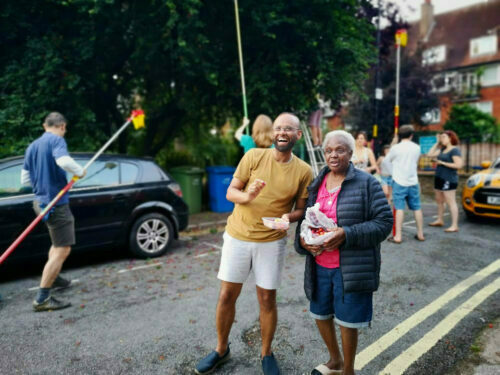When it comes to food, we don’t always recognise that we have an enormous shared interest in supporting a better local food system.
As the Cost of Living crisis bites, we are seeing the brutal impact it is having on so many of our neighbours and friends, and the wider impact on local markets, shops, and food businesses, all facing challenges and potential closures. The Food Foundation estimates that one in four families have experience food insecurity in the last month. This is worse than during the first weeks of the pandemic. This is a disgrace in a country as wealthy as ours.
Organisations working on food insecurity rightly focus on getting food to those that can least afford to buy food. But in our wider Walworth Neighbourhood Food Model work we’ve begun to understand much more about how the wider food system itself increases inequalities.
Supermarkets may sell cheap food locally, but at what cost? Supermarkets pay low wages locally, and further afield the true environmental, climate and social costs of food production are not accounted for with the United Nations reporting that food system account for one third of all Co2 emissions globally.
Crucially, although supermarkets are still making record profits, any profits are sucked out of our neighbourhood through shareholder dividends.
But we’ve also seen how a neighbourhood food system can offer real opportunities for those most affected by the cost of living crisis, and for the whole neighbourhood.
With a population of 45,000 in Walworth and an approximate annual spend on food of approximately £94,000,000, we have been asking – how could we keep more of this wealth in Walworth? How can we create opportunities for people to come together around food, for collaboration and partnership, and creating good paying jobs, and community-led businesses?
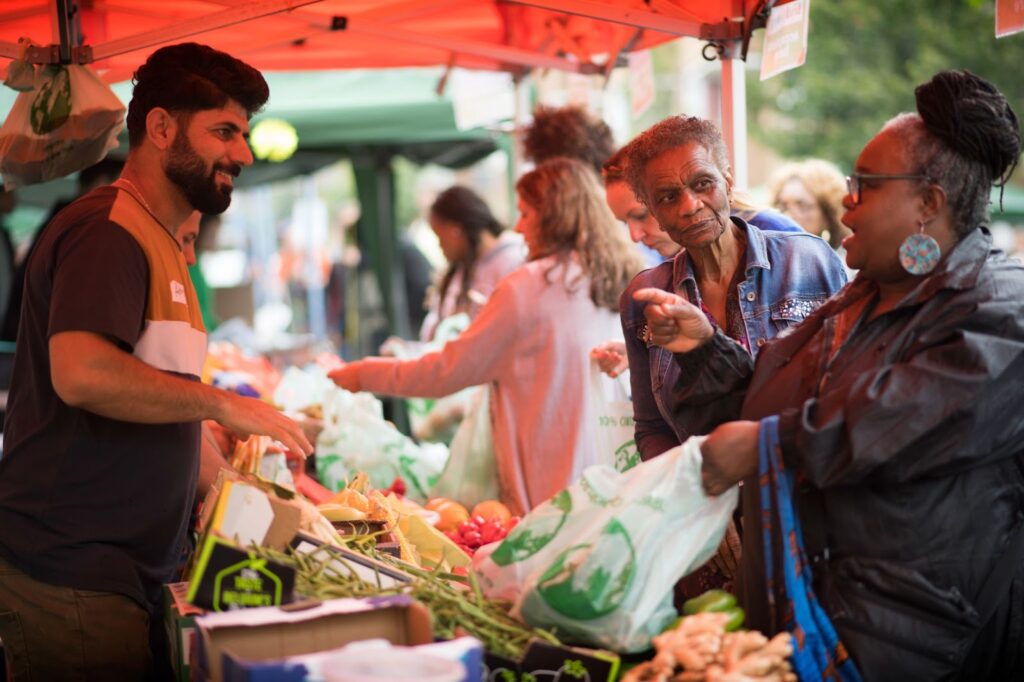
Over the past the year, we’ve been building relationships and developing ways to support and grow emerging initiatives. We’ve been asking – can we identify the existing gaps and opportunities that would accelerate change? How could we enable everyone – individuals, groups, and organisations to play a greater role in a neighbourhood food system?
How far have we come?
We now have 14 ‘demonstrator’ projects! These range from emerging groups and ideas, to organisations who are testing or developing an area of their work, and have something to contribute to the model.
In keeping with a food systems approach our demonstrator projects range across food growing – food distribution – food preparation and food consumption:
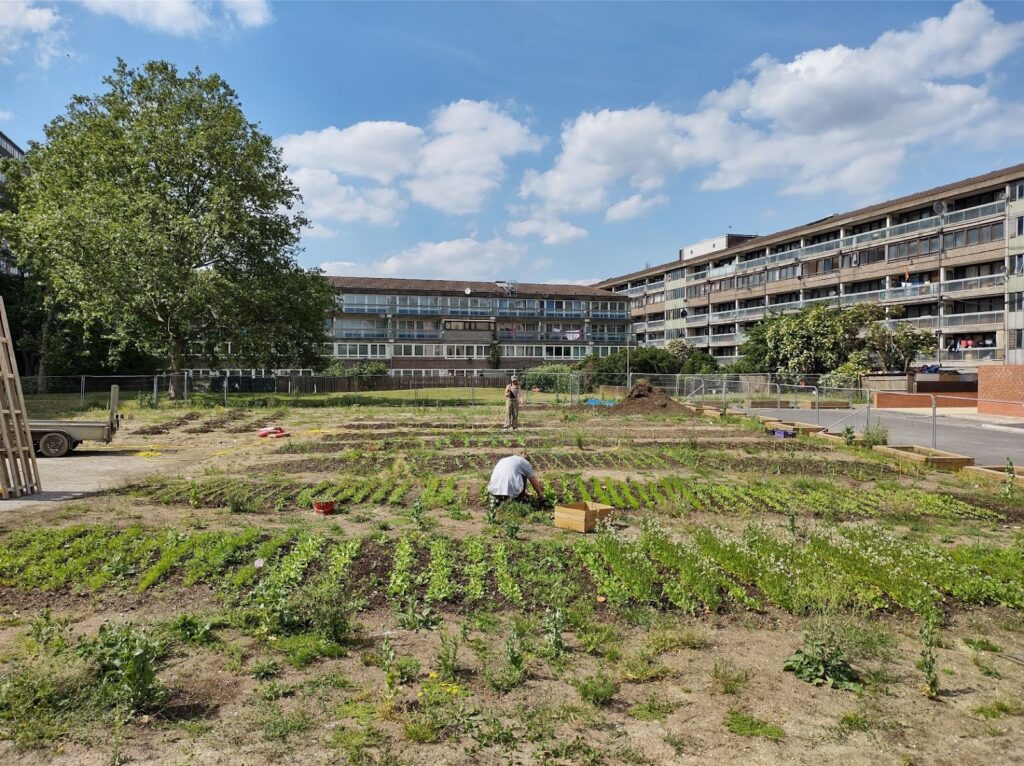
In the area of food growing, OK Grow on the Aylesbury Estate has been supplying community fridges and food banks with fresh vegetables, and has surfaced some of the challenges of food growing on a meanwhile-use development site. Greens Made Easy is a Microgreens social enterprise start-up, now supplying our community cafe with highly nutritious locally grown salad.
In food distribution, we’re working with Harem, of Adam’s Fresh Fruit and Veg on East St Market to better understand the challenges of market traders, and grow local supply chain opportunities. Our Community Fridge, which is part of a national network of surplus food redistribution points, creates the connections for residents to come together to plan for their own food buying cooperatives.
In food preparation, the Aylesbury Community Kitchen is a vision to build a kitchen facility for cooking classes, food entrepreneurs and community cooking days. We’ve been learning about different approaches from Community Kitchens across London. Meanwhile Walworth Garden’s plans for a Walworth Community Kitchen have developed a strong emphasis on local supply chains, and affordable food with a focus on skills, training and workshops.
In food consumption our own Walworth Living Room Cafe navigates the complexities of a self-sustaining business model in the current cost of living crisis, with a model based on delicious paid-for food, at fair prices, and London Living Wage employment, alongside Pay-it-Forward, and free food offers.
Our Action Learning Group creates the space for emerging food initiatives to learn from each other. Inspired by the network of mutual support in the Walworth Community Gardening Network, we believe peer-to-peer support is the most powerful method for sharing operational challenges and successes, as well as building the neighbourhood connections and solidarity that are needed to sustain activity over the long term.
We’ve also developed a Neighbourhood Food Tour – a great way to find out more about food initiatives in your neighbourhood. We are hoping to offer more neighbourhood food tours in 2023. Get in touch if you’d like to help out with running the tours.
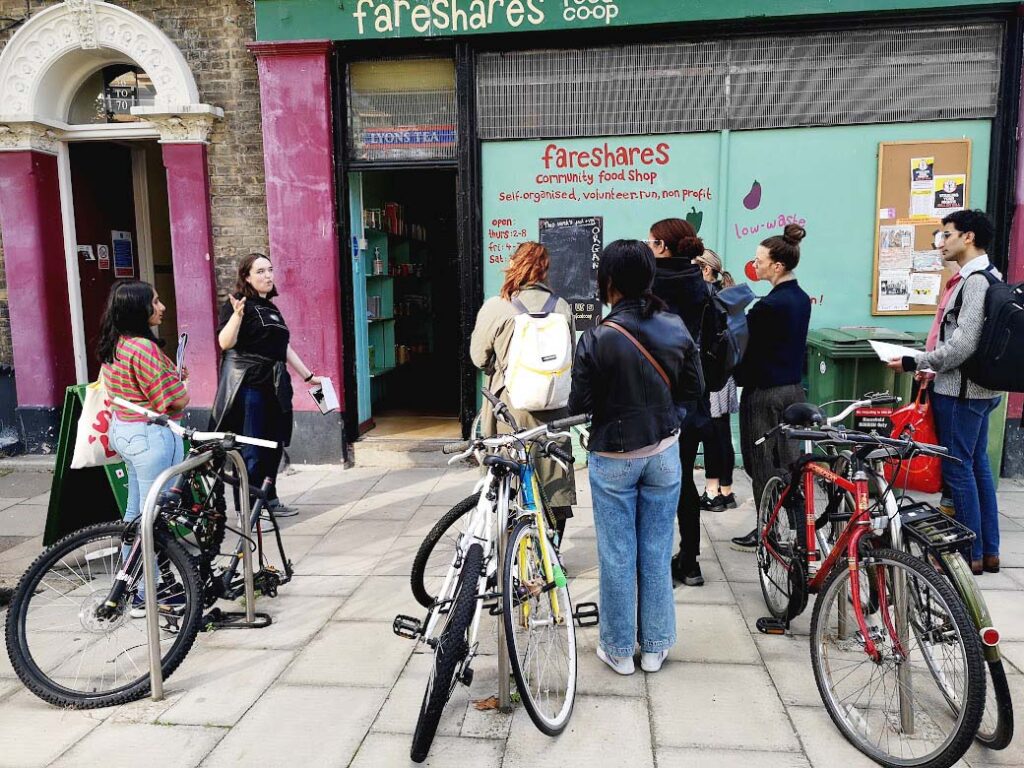
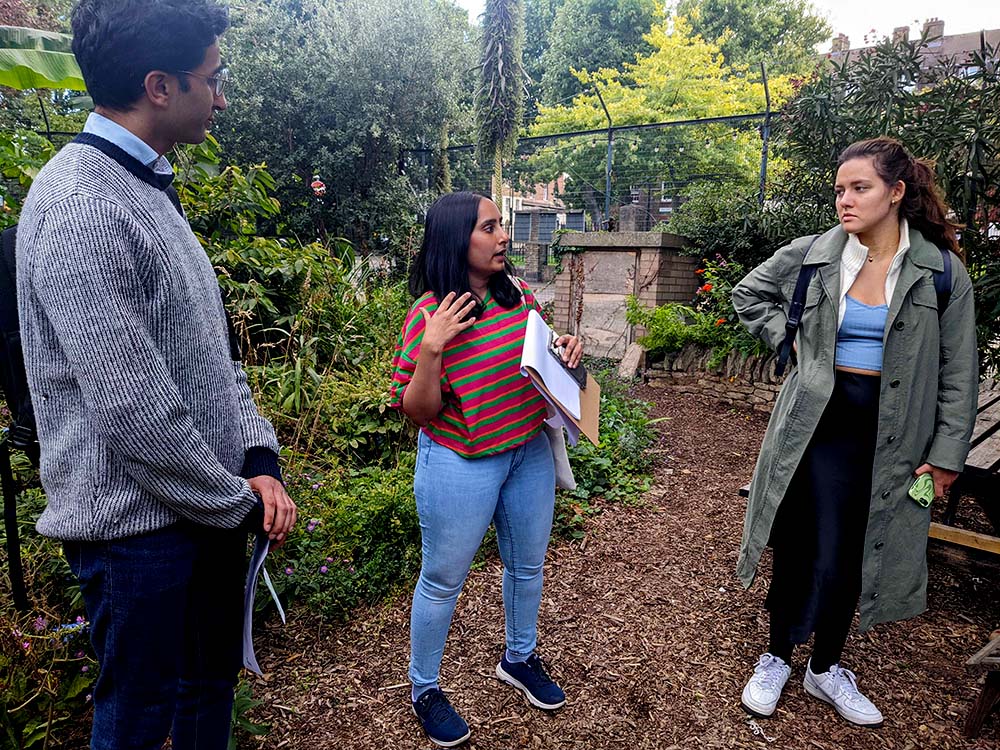
We’ve also seen a growing interest in the idea of community ‘governance’ ensuring that local businesses and initiatives involve a genuine mix of local people at all levels of the organisation. The Walworth Community Pub is an emerging example of this with their Community Benefit Society and local share offer due to launch in 2023.
No one said transforming the food system in our neighbourhood would be easy. But the creativity, innovation, resilience and deep love of food in our neighbourhood continues to offer signs of hope.
As we start making plans for next year – we want to ask is – how can we build a wider coalition to support a neighbourhood food system in Walworth in 2023. We need as wide as possible collaboration. We need residents, gardeners, and logistics experts – we need brewers, bakers, funders and entrepreneurs, councillors, cooks and storytellers.
If you can help build a better neighbourhood food system let us know your food story, and how you might be able to play a part.
